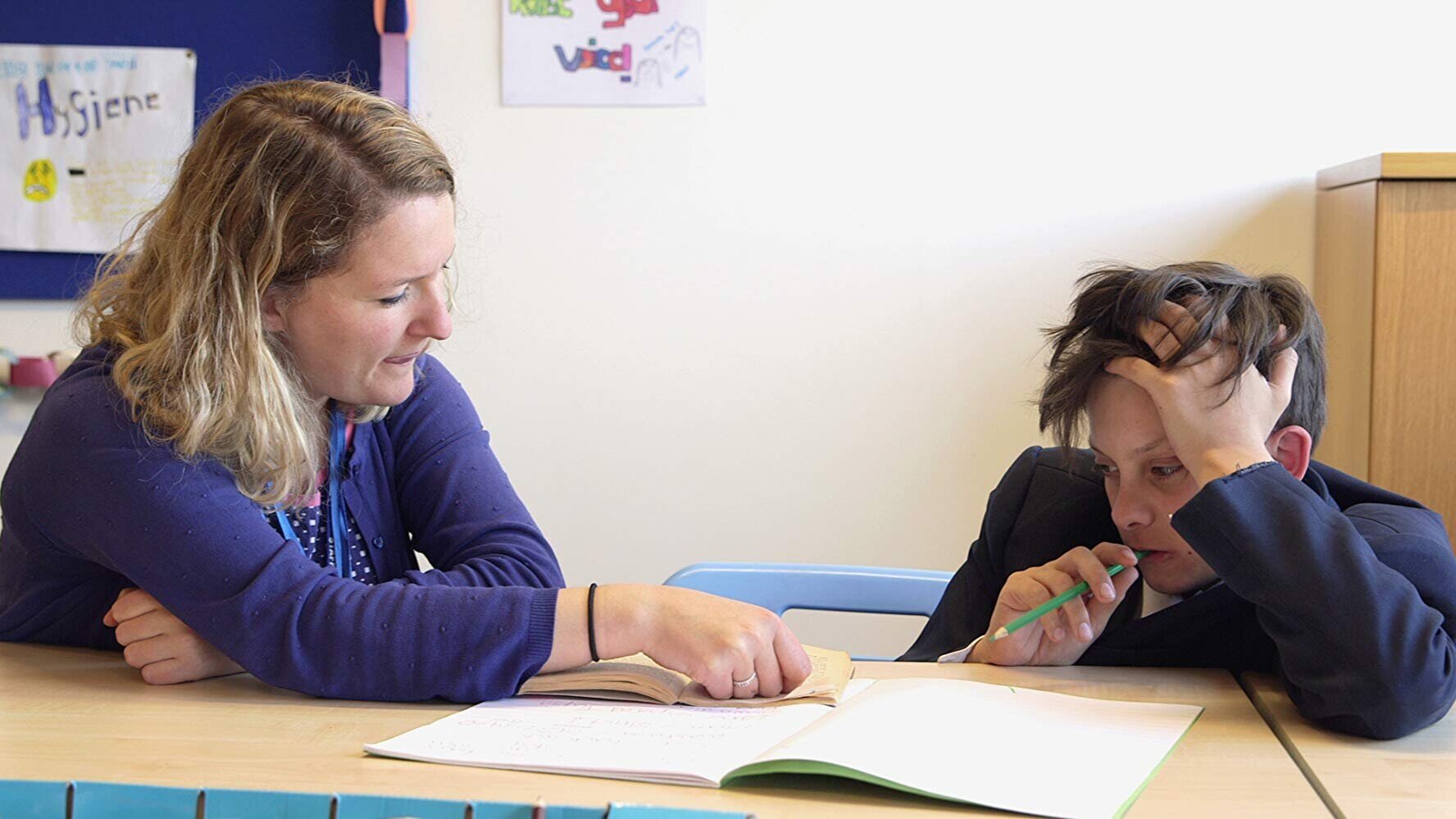H Is for Harry
Good intentions are evident in a documentary that could have been much better.
It’s a fair assumption that audiences who seek out this documentary about children with learning difficulties will find H is for Harry a touching experience. What we have here is truly concerned film making featuring staff and pupils at the Reach Academy in Feltham and the appeal of the children and of the teacher most prominently seen, Sophie, is such that I have allowed it to influence my rating although, truth to tell, as a critic I feel that this film by Edward Owles and Jaime Taylor is something of a misfire.
A written statement at the start refers to educational inequality in this country, a broad theme that is inadequately addressed here. It is indicated that the Reach Academy is a special school set up by young teachers and that apparently occurred in 2012. However, the film tells us nothing of how it came about and is as vague about how it functions as it is regarding the range of pupils for some or all of whom council funding is provided. Instead of giving us a prologue explaining the exact aims - precisely what the Academy was seeking to redress and the methods adopted to do that - the film simply shows us Sophie, a new teacher, with her class and moves in on one pupil there, 11-year-old Harry, to make him the central figure. Being illiterate, he is there to learn to read and write being encouraged to do so by his father, Grant, who reveals that the same issue had applied to his own father and to himself. But we never learn how many pupils are in the same boat. Is he typical or atypical given that the film concludes with a new child signing on who has quite different problems and wants to put behind him involvement in both a knifing and in drug taking?
Inevitably in view of the film’s title one expects Harry to be its subject but while his story is told, it is less the core of the film than a means of illustrating the work of the Reach Academy. At the outset there is a reference to the course there lasting for seven years, but we never discover exactly how the classes function (Harry is one of a group outside the main English class because he is backward but, bizarrely as it seemed to me, the ultra-positive welcome by the school implied that all would go on to GCSEs and to University). Quite apart from the lack of clear information, the film is well meaning rather than adroit in other areas too: having given the impression that it will cover a school year, it then goes on for a while beyond this and the music heard on the soundtrack verges on the banal. Rather weirdly a few sequences have subtitles yet this sometimes happens when one can hear what is being said but is not done at other times when words are rather indistinct.
For that matter and more seriously, the film never fully comes to grips with why Harry does so well at times but not at others (does the school fail him and, if so, in what way?). The criticisms of the film mount up, but the sight of these children and their teachers striving hard to achieve something despite the social disadvantages will carry the day for many viewers. Given the emphasis here on the issue of illiteracy, H is for Harry is being released on Thursday, 7th March, to coincide with World Book Day.
MANSEL STIMPSON
Featuring Grant, Sophie, Harry and the pupils and staff of the Reach Academy.
Dir Edward Owles and Jaime Taylor, Pro Jon McGoh, Ph Edward Owles and Jaime Taylor, Ed Emiliano Battista and Matt Scholes, Music Mike Brooks and Pablo Scopinaro.
Mercurial Pictures Ltd./Postcode Films-Mercurial Pictures/Dartmouth Films.
86 mins. UK. 2018. Rel: 7 March 2019. Cert. 12A.


